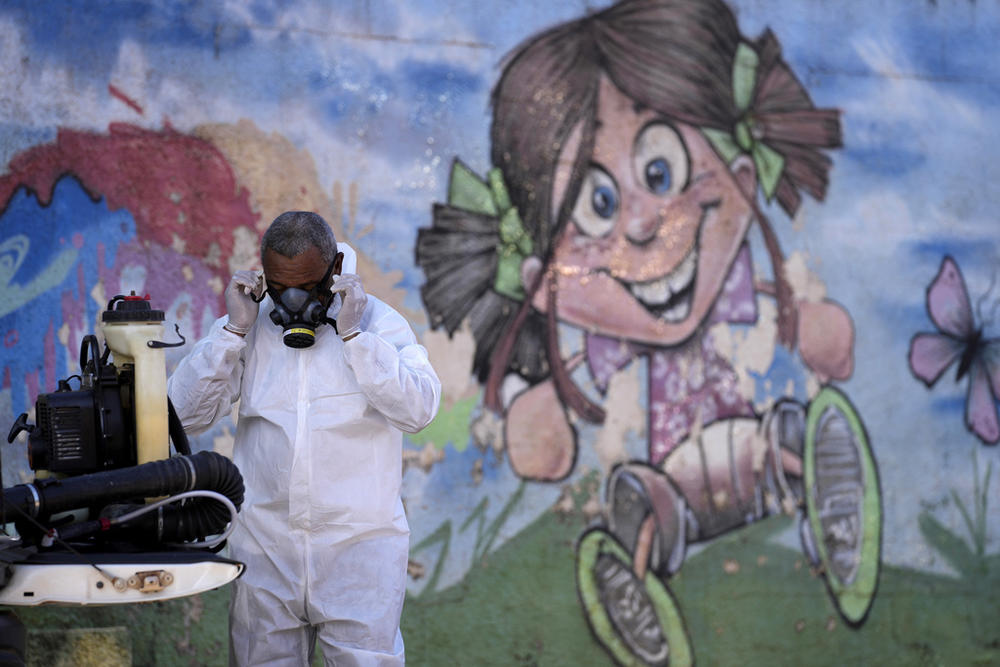
Caption
A public health worker adjusts his mask as he prepares to fumigate a public school as part of a campaign against dengue-promoting mosquitoes, in the Sao Sebastiao neighborhood of Brasilia, Brazil, Saturday, March 9, 2024.
Credit: (AP Photo/Eraldo Peres)

